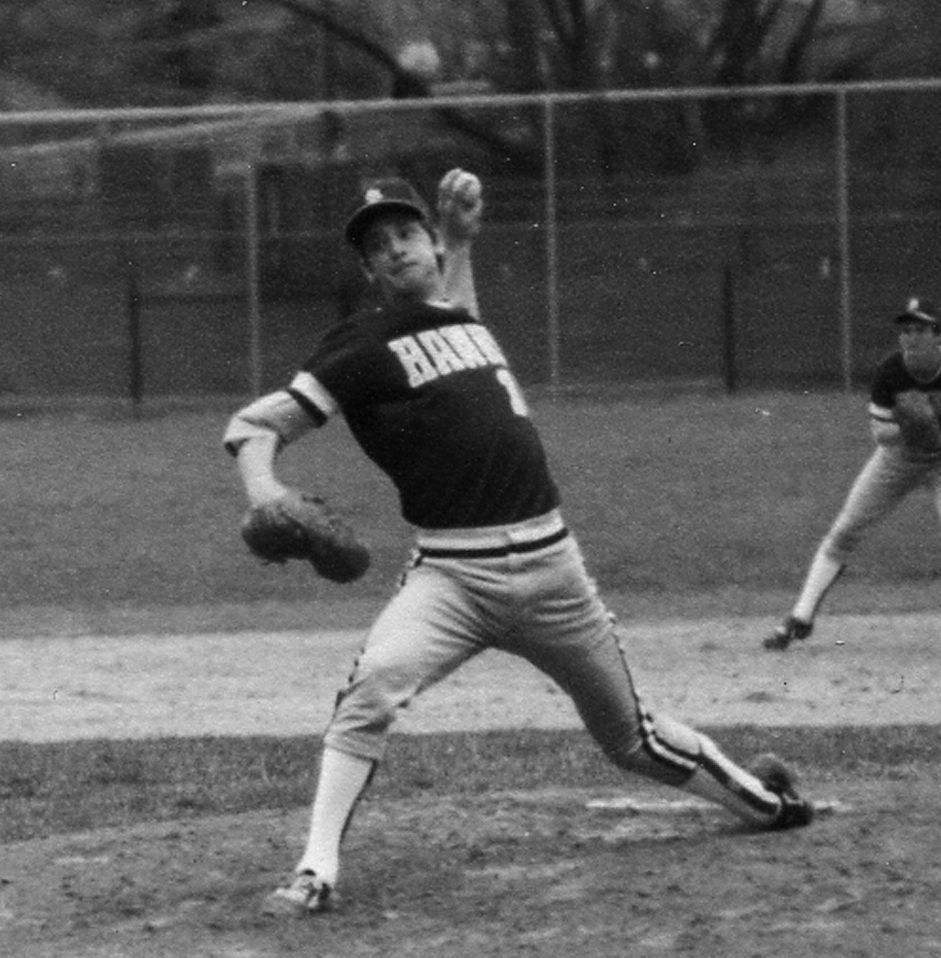Since The Hawk is unable to bring our readers typical sports coverage due to the coronavirus pandemic, we want to reflect on sports highlights from years past. This week’s edition highlights important moments from the career of World Series champion and St. Joe’s alumnus, Jamie Moyer.
No former St. Joe’s baseball player has gone on to have a better major league career than Jamie Moyer. A native of Souderton, Pennsylvania, the 6-foot left-handed pitcher played for 25 years in the MLB for eight different teams, recording 269 career wins. He earned a win against every MLB team, and is one of three pitchers ever to earn 100 wins after the age of 40.
Moyer was a member of the Philadelphia Phillies team that won the 2008 World Series, and started game three of the series at 45-years-old. He earned a spot on the 2018 voters ballot for the National Baseball Hall of Fame.
Moyer’s college career on Hawk Hill places him near the top of the list in many statistical categories in the St. Joe’s baseball record book. He ranks fourth in wins (16) and seventh in strikeouts (170), despite the seasons being only 33 games as opposed to the roughly 50 game schedule that is now the standard for the St. Joe’s baseball team. Moyer’s 1.99 ERA ranks third all-time at St. Joe’s.
In 2018, Moyer had his jersey number retired by the St. Joe’s baseball program, which was commemorated by a picture of his jersey on the left field wall at John W. Smithson Field. His number, 10, remains the only number retired by the St. Joe’s baseball program.
Moyer, in a 2018 interview with Ryan Mulligan ’21, assistant sports editor, said:
“I’ll always be appreciative of that opportunity that I had at St. Joe’s. Not only to be an athlete, but also to be a student, to allow me to further my education and eventually get my degree and move on to a professional baseball career.”
Here are highlights of Moyer’s career at St. Joe’s and professionally:
On March 2, 1982, Moyer won his college debut against Adrian College, striking out seven batters in four innings. Three days later, Moyer and senior pitcher Tom Gallagher combined for a one hitter in a 1-0 win versus Heidelberg College. Moyer would finish his first season with a 1.21 ERA, which ranks third all-time for a St. Joe’s pitcher in a single season. The 1982 team finished the season 20-6-1, which still ranks as the highest winning percentage for a St. Joe’s baseball team. The team’s pitching staff owns the record for most recorded shutouts in a season with five in total.
In Moyer’s junior season as team captain in 1984, he finished the season with 90 strikeouts, which is still the St. Joe’s record. His 1.82 ERA was ranked 12th nationally that year. Moyer pitched seven complete games on a team that tied for second in the Atlantic 10. He was named a Best Supporting Athlete at the 1983-84 Hawk Awards, and in an article from The Hawk was described as “striking out batters left and right.”
After his junior season, Moyer decided to forgo his final year of eligibility to play professionally. The Chicago Cubs selected Moyer in the sixth round of the 1984 amateur draft. A scouting report from Chicago Cubs scout Billy Blitzer describes what he saw in the left-hander from a game early in Moyer’s senior season.
“Moyer, with a tough curveball, changing of speeds, mixing pitches up, and good control, can be a tough combination to beat,” Blitzer wrote.
In 1997, Moyer was one of the first three inductees to the SJU Baseball Hall of Fame, alongside outfielder and coach Harry Booth ’62 and outfielder Dave Landers ’71. Moyer was also inducted into the SJU Athletics Hall of Fame in 1999.
On April 30, 2009, Moyer received an honorary degree from St. Joe’s for his work with The Moyer Foundation, now called Eluna Network, which, at the time, raised over $17 million to support children enduring a time of physical, emotional or financial stress.
Tom Hagan ’11, assistant sports editor, wrote for The Hawk:
“Joseph DiAngelo, Ed.D., dean of the Haub School of Business, gave a speech outlining the achievements of both Jamie and Karen Moyer, making sure to emphasize the Moyers’ embodiment of the phrase ‘men and women for and with others.”




















































